1-Line Summary: The 15 Invaluable Laws of Growth by John Maxwell discusses 15 laws that are essential for growth in life and thus reaching one’s maximum potential.
Get The 15 Invaluable Laws Of Growth audiobook: Buy on Audible
Get the Hardcover version: Buy on Amazon
Get the Paperback version: View price on Amazon
The 15 Invaluable Laws Of Growth Summary [PDF]
Just as there is the immutable law of gravity in science, there are immutable laws of growth in self-improvement.
In simple words, if you act and think in a certain way, your growth is certain.
In this video, we are going to discuss 9 best lessons from the book “The 15 Invaluable Laws of Growth,” written by John Maxwell.
These lessons will help you reach your maximum potential.
Alrighty, so without further ado, let’s dive right in!
Lesson #1: The only way to start growing right now is to become intentional about it.
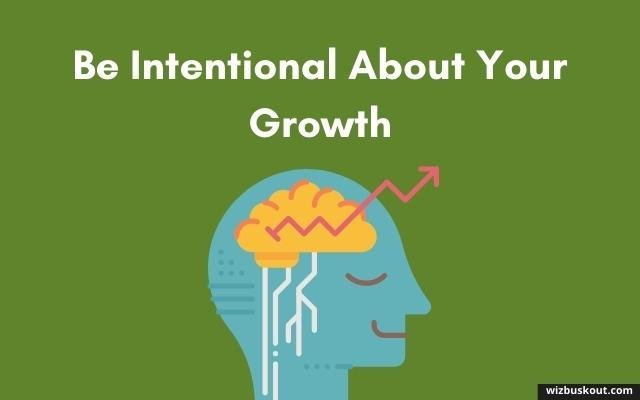
Most people grow up thinking that growth is a natural phenomenon.
Sure aging is natural.
But that’s not the case with growth.
You won’t grow with time unless you are intentional about it.
No person in this world has become successful just by growing old.
Most things that don’t require much effort are not worth having.
For example, if you want to develop your critical thinking, you need to engage yourself in it.
You can’t grow it just by doing those same old pattern thinking.
Unless you are deliberate about growing yourself, you are navigating nowhere.
Often people think that formal education is enough.
No. That’s not true.
Formal education is okay.
But once you stop learning, you stop growing.
Even formal education wouldn’t help you much if you had no intention of learning.
The author talks about various traps that people fall into and limit their growth.
For example, some people say that they don’t have time, don’t even have the motivation, and don’t know what to do.
These all are just excuses.
The thing is:
You will never be motivated enough.
You will never have so much time.
You will never have a full view of the path you need to follow to fulfill your dreams.
Sorry to break this to you, but it’s never going to happen.
Nobody is prepared enough.
Personal growth is a journey. (And it can be a daunting one if you are honest with yourself.)
The author says that it’s like driving a car. The more you move ahead, the more road you see and understand which direction you are going.
Nobody can’t see the future.
There will always be problems.
Nobody has a perfect life. (Yes, despite many people claiming it these days.)
The only thing you can do is:
Decide to grow.
And don’t just decide. Start taking action every day.
Everybody hopes to become rich, and guess how many do?
Everybody hopes to have a fit body, and guess how many have?
Very few, right?
Hope is a great motivator, but it doesn’t bring you results.
What can you learn from this?
It means that there is no growth without intention and action.
So be intentional and decide what actions you will take to grow yourself.
Remember, if you don’t become intentional, you won’t grow exponentially.
Sometimes, growth is accidental, says the author.
But do you want to live an accidental life? Or do you?
I guess you don’t.
As you read this summary, you have deliberately decided to grow yourself.
Millions of people are watching cringy content on the internet right now.
But you chose to be here and read this book summary.
Don’t stop! Keep reading!
Lesson #2: Become aware of your goals and desires.

The author says that the first step towards personal growth is awareness.
The idea is:
If you don’t know about your needs and desires, you won’t make the right choices.
Knowing what you want in your life is crucial.
Often people keep working all their lives without ever questioning why they are doing what they are doing.
And guess what happens…
Yes, they spend time doing things they didn’t profoundly want.
Most of our choices are made by society.
Nothing is personal in our lives.
Before anyone tells you what to do and how to do it, you must be clear about what you are currently working on and why you are doing it.
But the question is:
How will you know what to do with your life?
To answer this question, you must know yourself first.
You must ask yourself questions like:
- What are your innermost desires?
- What are you good at?
- What is it that you will never compromise on in your life?
- What will help you achieve freedom from problems in your life?
- What are the burning problems in your life that you hope to fix right now?
Once you know what you want to acquire or get rid of, you must think deeply and try to figure out why you want to do so.
These questions will give you a lot of clarity in life.
Life can be tricky to deal with.
But if you have a certain level of awareness or clarity, you don’t get distracted in life. When you make a wrong choice, you know it.
Many people don’t even realize that they are moving in the opposite direction.
Why? Because they don’t have clarity and awareness.
They are mindlessly doing stuff, not knowing if what they are doing is actually worth doing or not.
Recommended Read: What are you doing with your life by J Krishnamurthi [Book Summary]
In the book, the author has touched on many deep concepts that highly influence what we do in our lives at every moment.
Lesson #3: Build a strong character by improving your self-image.
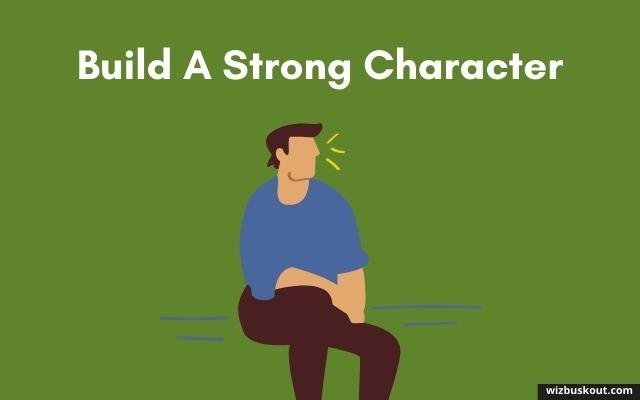
What if I tell you that you have the same potential as so-called “successful people”?
You would say, “No way. I can never reach that level.”
A few years ago, I would have had the same response.
Do you see the problem?
We don’t think very highly of ourselves.
Most people suffer due to their low self-esteem.
In other words, they have a terrible image of themselves when it comes to counting their skills and strengths.
On the flip side, they tend to glorify their weaknesses.
Whenever they do something great, they don’t appreciate themselves.
And if they make a mistake for some reason, they do a lot of self-pitying.
Look, this doesn’t mean that you have to become an egoist.
But a little appreciation won’t do any harm.
You have to believe that there is immense potential within you. Please note that this is not just to fill you with empty motivation. Everybody has some strengths, which they can use to add value to society.
But…
To add value to others, you first need to add value to yourself.
The author suggests that you start by helping other people. You feel good when you do something good for someone other than you. And you think highly of yourself.
Your self-image becomes positive.
And not only does it improve your self-image, but it also improves your character.
There is a caveat that is often ignored.
Building a fake self-image can be a big issue.
When serving others, make sure that you do so with a true heart.
Don’t serve others to make yourself feel good.
Serve because you want to serve.
Try to understand why it is necessary to do something beyond yourself.
The idea is to destroy false images and beliefs that are within you. Always remember this as your ultimate goal.
If you aren’t truthful, you will be building a castle of sand.
Sooner or later, reality will strike you. And that weak castle would crumble down into pieces.
You have to build such a strong character that no circumstance would be able to budge you.
Lesson #4: Pause and reflect on your life.
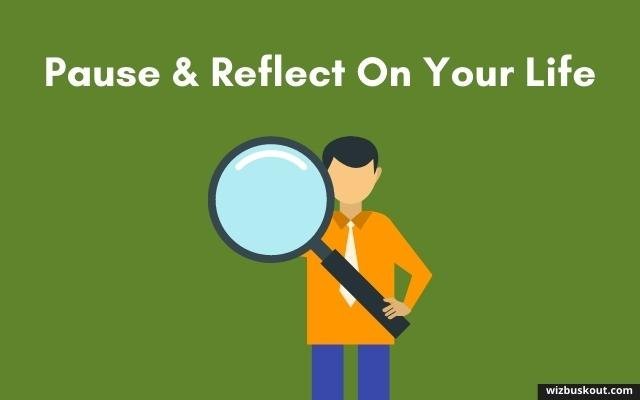
We live a fast-paced life these days.
And thus often forget to reflect on our life.
We forget to question if our actions contribute to our ultimate goal in life or not.
Surprisingly, most people are unaware of their ultimate goal in life.
The author suggests that one should pause and reflect.
By pausing, he means that you should carve out some time out of your busy life and use it to think about your life.
It would be best not to use the extra time to entertain yourself.
Sit alone in a quiet room and start reflecting.
Ask questions like:
- What is my ultimate goal in life?
- What am I doing these days to grow my talents?
- Am I going in the right direction?
- What do I need to change in my life?
- What was I like 10 years ago?
- How is my spiritual or mental health?
Sure, work is important. But the purpose behind any work is far more critical than the work itself.
Otherwise, how will you know how close you are to your goal? And how will you know when to stop chasing it?
Question your life.
Question your decisions.
I recommend that you think about these things before going to sleep at night. So that the next day you will have a plan or something to work with.
Lesson #5: Find more ‘WHYs’ to stay consistent.

No matter how interesting a job is, it gets dull with time.
For example, if you are reading this book summary, you like reading books.
But let’s be honest, it can get boring if the book is not hooking your attention long enough.
That’s why you need a strong reason for reading books.
Likewise, anything can become dull with time.
If you don’t have a strong reason, you won’t be able to do it long enough.
Most people lose interest in their jobs because they don’t have a strong reason.
Some are doing it just for the sake of money. And that keeps them going despite their lack of interest.
Many startups fail. But what do you think pushes entrepreneurs to keep moving despite tough challenges?
It’s their strong purpose.
The key takeaway is:
If you have more reasons to pursue anything, you will stand a better chance to stay consistent.
Consistent practice helps you grow.
And wIthout growth, life becomes tiresome pretty fast.
Lesson #6: Build systems and designs to maximize your growth and efficiency.
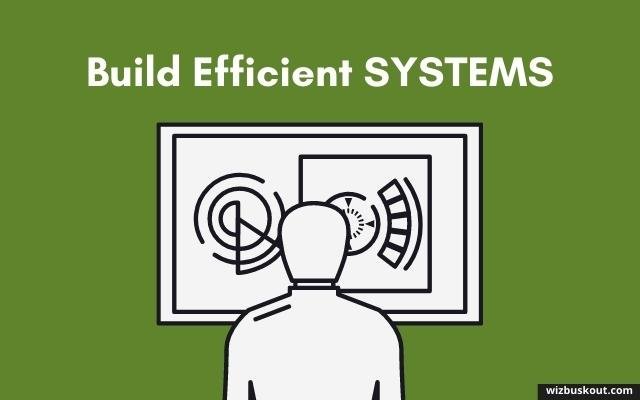
Ever found yourself working hard throughout the day and later realizing at night that you weren’t productive at all.
Surprisingly, everybody is working so hard, yet only a few people are genuinely productive.
Everyone wishes they had one extra hour.
But that’s not going to happen.
The best way to deal with this problem is to bring organization and structure into our lives.
And how does one do that?
By building easy-to-implement systems.
What is a system?
It’s simply a repeatable action plan that you can follow to achieve your goals.
Systems help you simplify the process so that you don’t have to start from scratch every time you execute a particular task.
For example, if you love writing, build a system that includes brainstorming ideas, documenting them, and writing them in order.
This will save you a ton of effort and time.
You see, you won’t just build a perfect system in one shot.
Every system requires constant improvisation.
The author advises that if a system doesn’t work, one should stop using it.
There is no need to build an attachment to a particular system if it doesn’t make you productive or fulfill your requirements.
Time is the only thing that can’t be bought with money.
By learning the skills of designing efficient systems, you can also plan your life.
The author quotes that:
“Most people spend too much focusing on their careers, but they rarely spend time thinking about designing their lives.”
Remember, the ultimate goal of designing is to help you live a life you want to live.
The author has built systems for every little thing in his life. And thus, he has boosted his growth in less time.
Again, you must have enough room for adjustments.
Keep your systems flexible.
Lesson #7: Understand your bad experiences and use them to grow yourself.
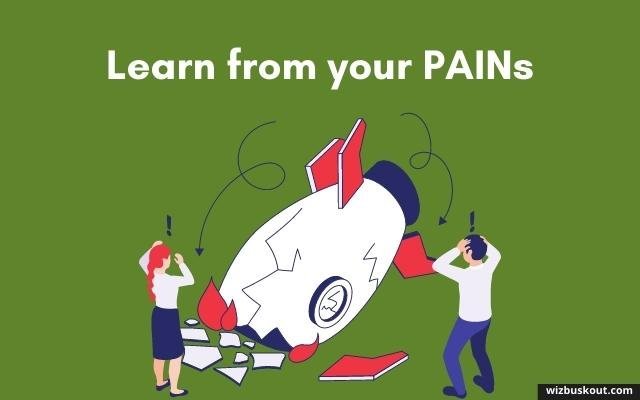
Nobody wants pain, right?
But it’s a part of life.
No matter how good your life is right now, expect some pain if you are trying to grow.
Often people get emotional and don’t take pain as feedback.
But it’s a mistake not to learn from your bad experiences.
Let’s say you fail at something while trying.
Then it’s not a bad thing. It’s a lesson.
And who knows how that lesson might help you in the future.
The only people who don’t like failures or pain are those who never try anything new.
The people who are not growing and always play safe never grow.
Even the author experienced so many failures during his life. He, too, had terrible relationships, a dull career, lousy health, etc., at some point in his life.
But he used them as feedback. And eventually focused on the growth.
Your focus must be on growth, the process, not on how bad your experience is.
Lesson #8: Your character is much more important than your personality.
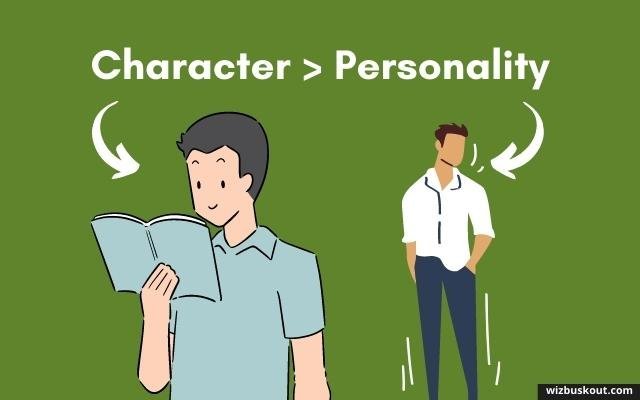
Most people worry too much about how they look from the outside.
But it’s the inside that matters more.
What does “inside” mean?
It’s your character.
What you are from within is what defines your character.
How do you feel about yourself and this world?
Are you authentic from the inside?
Do you care about other people or trust them?
Are you willing to let go of all the false notions inside your head?
What’s your attitude towards personal growth?
These answers will tell you a little something about your character.
On the flip side, your personality is superficial.
And it’s often faked by people.
Sure, you may look good from the outside, but your life is shaped more by your character.
The choices you make, the actions you take, etc., all define your character.
Also read: The 7 Habits Of Highly Effective People [Summary]
Lesson #9: Keep stretching your limits until you reach your full potential.

When you stretch your body while exercising, your muscles become more flexible. Thus you become more powerful.
Your body becomes stronger.
In the same way, you should also stretch your limits.
Right now, you are somewhere in your life. And there is so much more yet to be discovered.
Whatever your strengths are right now, you should not think of them as your limits.
If you are already successful, try to beat your own success.
If you are on level 10, try to reach level 20.
That’s what growth is all about.
And even if you reach 20, don’t stop growing.
There is no limit to how much a person can achieve in his life or career.
Most people stop growing after a certain age.
Don’t let that happen to you.
The author says that if a person has stopped growing, he is as good as dead.
You are alive only when you are growing.
The 15 Invaluable Laws Of Growth Quotes
Here are some memorable and notable quotes from this book:
Life is not the way it is supposed to be. It’s the way it is. The way you cope with it is what makes the difference.
– Virginia Satir
The wise man questions himself, the fool others.
– Henry Arnold
If you won’t be better tomorrow than you were today, then what do you need tomorrow for?
– Rabbi Nachman of Bratslav
Life begins at the end of your comfort zone.
– Neale Donal Walsh
“You only live once. But if you work it right, once is enough.”
– Fred Allen
Buy the book And Read
If you’re thinking this is enough. You’re wrong.
This was just a trailer of what this book has to offer.
Get The 15 Invaluable Laws Of Growth audiobook: Buy on Audible
Get the Hardcover version: Buy on Amazon
Get the Paperback version: View price on Amazon
Get the Audio CD: View price on Amazon
Now it’s your turn
If you loved this summary, let me know in the comments below.
Feel free to share this book summary with your friends.
And don’t forget to sign up for my email newsletter, grab lots of growth guides, and stay updated with the latest book summaries.
Want to consume more insightful, power-packed content like this in the future?
Subscribe to the weekly email newsletter.
Subscribe to YouTube channel for animated video books.
Try Amazon’s Audible 30-days Free Trial and Get 2 Audiobooks for free.

